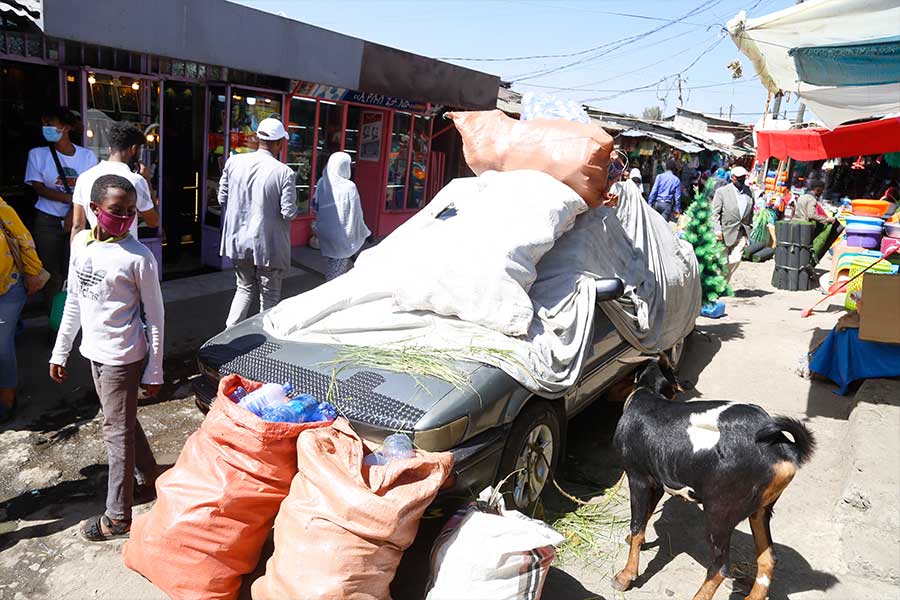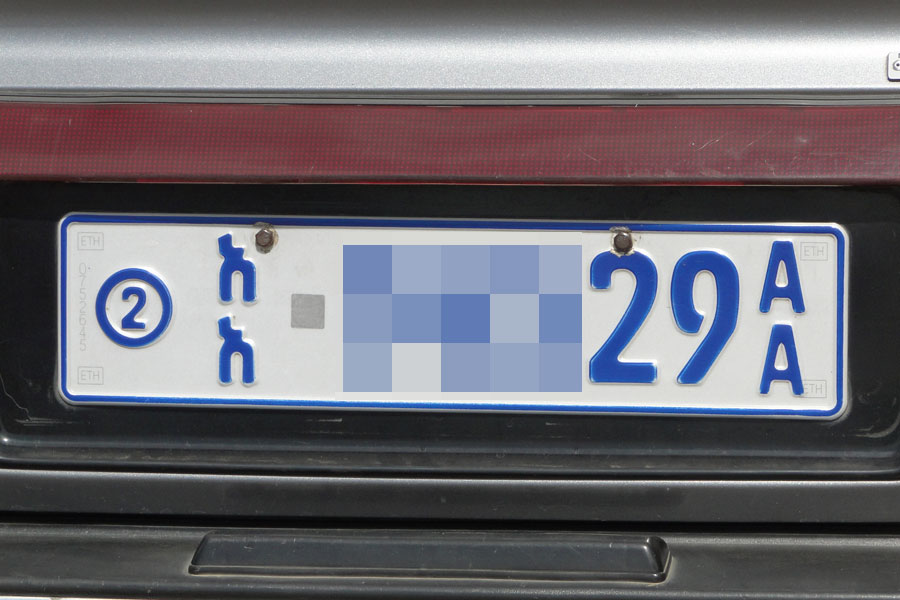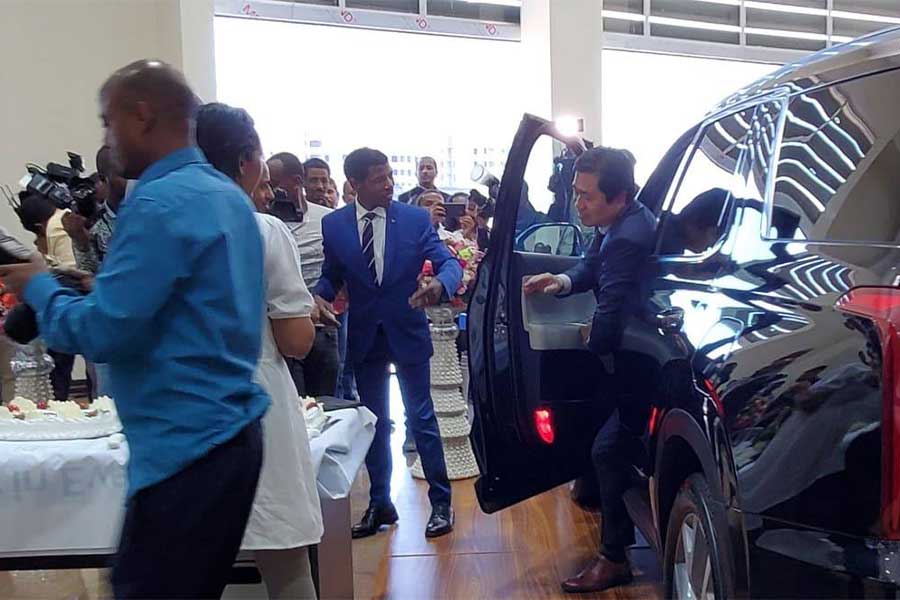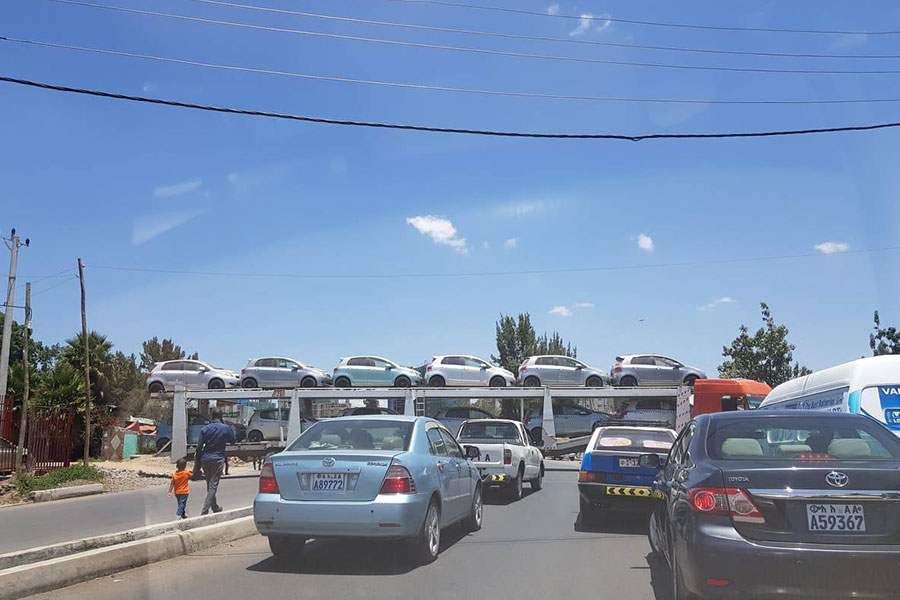
Radar | Jan 09,2021
Jul 19 , 2025
By Eden Sahle
Last week, I was in the hospital, sick and out of commission. While I focused on recovery, my husband Mike took over without hesitation. Just a father doing what he always does: parenting. But what unfolded outside our home revealed something unsettling.
Last week, I was in the hospital, sick and out of commission. While I focused on recovery, my husband Mike took over without hesitation. He cared for our daughter completely. No fanfare. No applause. Just a father doing what he always does: parenting.
But what unfolded outside our home revealed something unsettling. As Mike took our daughter to parks, grocery stores, and on walks, he met a strange mix of praise, scepticism, and judgment. Some admired his “hands-on” approach, but their surprise suggested it was unusual. Others criticised him outright, questioning how he held her, fed her, or gave her water.
The inevitable question came: “Where is her mommy?”
These were not rare occurrences. They were constant. Only when people noticed how happily our daughter responded to Mike did the criticism ease. Some even apologised, but by then the damage was done.
That question – “Where is her mummy?” – echoes a deep bias: that mothers are the default, and fathers are just stand-ins. This same thinking shows up in practical ways too. Diaper-changing tables are often located in women’s bathrooms, excluding fathers from the caregiving equation.
Mike frequently finds himself in awkward situations when trying to change our daughter’s diaper in public. Sometimes, the only option is to enter the women’s restroom, which is uncomfortable and inappropriate. It is not just inconvenient, it is unfair. Fathers who actively parent deserve spaces designed for them too.
The truth is, fathers today are doing more than ever. They attend school meetings, change nappies, pack lunches, braid hair, and soothe nightmares. Yet the perception that fathers are somehow “second fiddle” lingers. When a father nurtures, people act surprised, as though love and competence do not belong to him.
This perception is not just outdated, it is damaging. It places unrealistic pressure on mothers while discounting the love and labour of devoted fathers. Worse, it teaches children that caregiving is gendered, tied to biology instead of love and responsibility.
But many fathers today are reshaping that narrative. They do not want to be part-time parents or distant providers. They want presence, emotional connection, and deep bonds with their children.
Still, they face scrutiny.
When mothers walk with their children, no one questions them. But when fathers do the same, especially alone, they become spectacles. People comment. Some even intervene. If the child cries, strangers assume he is clueless. If his method differs from a mother's, it is called incompetence, rather than just a different approach.
When a father nurtures, people act surprised, as though love and competence do not belong to him.
This bias shows up in countless ways. Fathers are praised simply for being with their kids, as if they are babysitting. Parenting products and services overwhelmingly target mothers. Hospitals direct communication towards mums, and schools call them first. Even the language we use – “maternal instincts,” “motherly love” – implies that care is inherently feminine.
But what about paternal instincts? They exist. They matter.
Children with emotionally present fathers tend to thrive. Studies show they do better in school, build stronger relationships, and develop resilience. Fathers offer distinct, vital forms of support, yet society often diminishes their contributions or treats them as extras.
This bias does not just harm fathers. It overburdens mothers. When society assumes mums are naturally better at caregiving, it sets impossible standards. It makes it harder for them to rest, recover, work, or simply breathe without guilt. It places all responsibility on one set of shoulders while underestimating and sidelining the other.
When people question a father’s ability to feed or soothe his child, they do not just doubt him. They are reinforcing a world where caregiving is “women’s work.” And when they ask, “Where is her mummy?” they suggest a father alone isn’t enough.
Thankfully, change is happening.
Younger generations are challenging these outdated ideas. More men are taking paternity leave where it exists, and pushing for it where it doesn’t. Families are sharing parenting duties with mutual respect, not tradition. Communities of fathers are forming, where men support one another and take pride in their roles as parents.
Still, society has not fully caught up.
Fathers should not need to exceed expectations just to be seen as capable. A child’s affection should not be the only thing that silences doubters. And a mother’s absence should not be required for a father’s presence to be validated.
What Mike experienced during my illness was not unique. It was simply a sharper example of what many fathers face daily. The side-eyes, the unsolicited advice, the subtle dismissal, it is not personal. It is cultural.
We do not need fathers to mimic mothers. We need them to be empowered as fathers, loving, capable, involved, and seen, not as substitutes, but as equals.
So next time you see a father with his child, don’t ask where the mother is. Do not watch for mistakes. Do not measure him against someone else. Just see him. Let him parent.
For many men like Mike, fatherhood is not a novelty. It is not a temporary act or a special performance. It is a lifelong, loving commitment, as real and essential as motherhood. It is time we gave it the same respect.
PUBLISHED ON
Jul 19,2025 [ VOL
26 , NO
1316]

Viewpoints | May 07,2022

Fortune News | May 21,2022

Fortune News | Jan 11,2020

Fortune News | Jun 11,2024

In-Picture | Mar 23,2019

Photo Gallery | 178832 Views | May 06,2019

Photo Gallery | 169030 Views | Apr 26,2019

Photo Gallery | 159880 Views | Oct 06,2021

My Opinion | 137117 Views | Aug 14,2021
Commentaries | Oct 25,2025

Dec 22 , 2024 . By TIZITA SHEWAFERAW
Charged with transforming colossal state-owned enterprises into modern and competitiv...

Aug 18 , 2024 . By AKSAH ITALO
Although predictable Yonas Zerihun's job in the ride-hailing service is not immune to...

Jul 28 , 2024 . By TIZITA SHEWAFERAW
Unhabitual, perhaps too many, Samuel Gebreyohannes, 38, used to occasionally enjoy a couple of beers at breakfast. However, he recently swit...

Jul 13 , 2024 . By AKSAH ITALO
Investors who rely on tractors, trucks, and field vehicles for commuting, transporting commodities, and f...

Oct 25 , 2025
The regulatory machinery is on overdrive. In only two years, no fewer than 35 new pro...

Oct 18 , 2025
The political establishment, notably the ruling party and its top brass, has become p...

Oct 11 , 2025
Ladislas Farago, a roving Associated Press (AP) correspondent, arrived in Ethiopia in...

Oct 4 , 2025
Eyob Tekalegn (PhD) had been in the Governor's chair for only weeks when, on Septembe...

Oct 25 , 2025 . By YITBAREK GETACHEW
Officials of the Addis Abeba's Education Bureau have embarked on an ambitious experim...

Oct 26 , 2025 . By YITBAREK GETACHEW
The federal government is making a landmark shift in its investment incentive regime...

Oct 29 , 2025 . By NAHOM AYELE
The National Bank of Ethiopia (NBE) is preparing to issue a directive that will funda...

Oct 26 , 2025 . By SURAFEL MULUGETA
A community of booksellers shadowing the Ethiopian National Theatre has been jolted b...